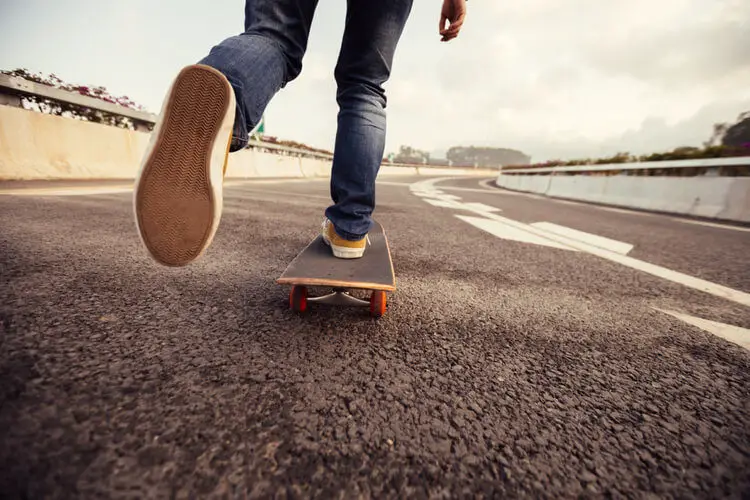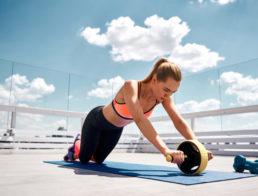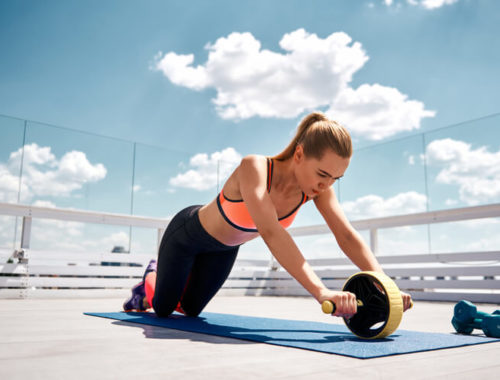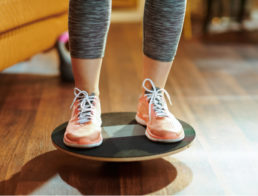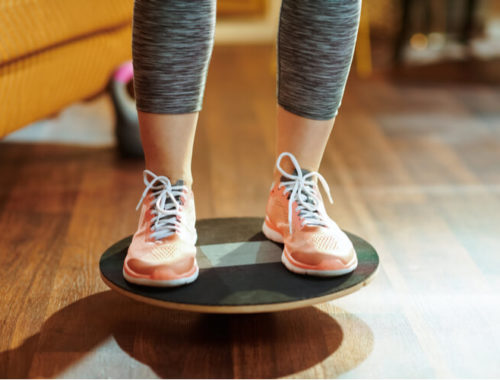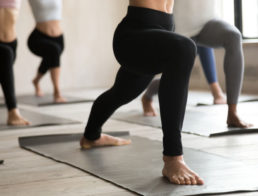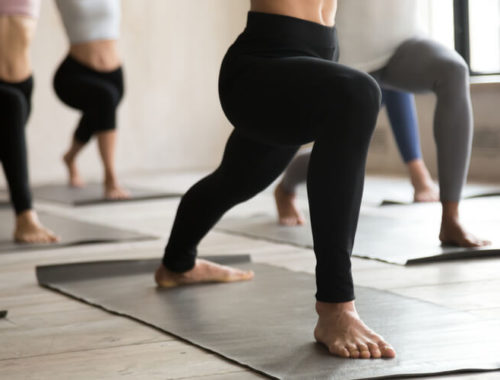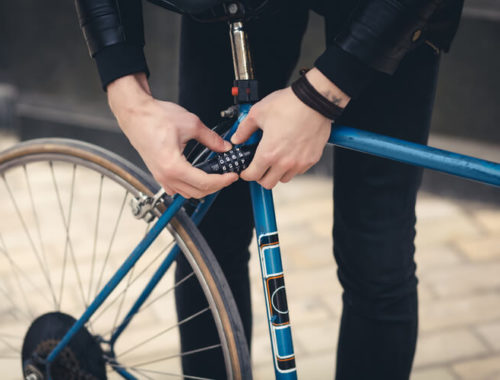Are you thinking about taking up skateboarding? You might have been inspired by watching this sport during the Olympic games in 2021 or maybe you just want a new challenge.
Skateboarding isn’t just for kids and teens. It has a number of health benefits, whatever your age. Plus, it’s not as dangerous as you might think—though you should definitely wear safety gear.
Here are some of the key health benefits of skateboarding:
1. Meet CDC’s Exercise Recommendations for Cardiovascular Fitness
Are you trying to get enough moderate-intensity cardio exercise into your week? Skateboarding can be a great way to achieve that.
The CDC recommends that adults get at least 150 minutes of moderate-intensity aerobic physical activity (or 75 minutes of vigorous-intensity activity) each week, stating that “following these guidelines can contribute to overall health, and decrease the risk of chronic diseases such as heart disease, cancer, or diabetes.” 1
You don’t need to be following a formal training program or spending lots of money to skateboard in order to see these cardio benefits. A 2020 study showed that “adults participating in recreational skateboarding in community skateparks achieve the CDC’s exercise recommendations for cardiovascular fitness.” 2
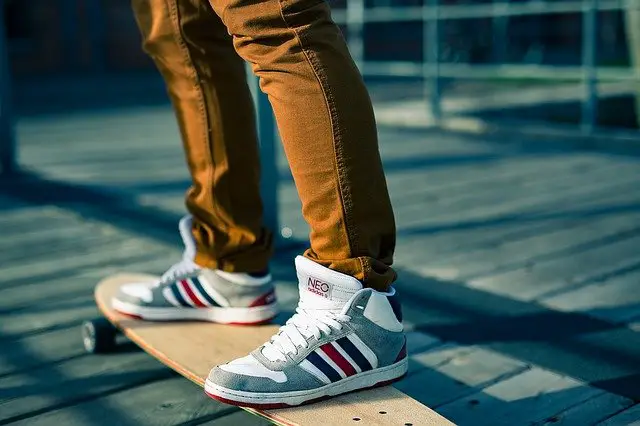
Image courtesy of Pixabay
2. Burn Calories While Having Fun
Skateboarding, like any cardio exercise, is a good way to burn calories. If you weigh 155 lbs, you’ll burn around 180 calories in 30 minutes of skateboarding. 3
This makes skateboarding a great activity if you’re looking to lose weight or maintain your weight loss. It’s an efficient way to burn calories while doing something fun at the same time. You don’t need to pay for a gym membership or any special equipment beyond your skateboard and safety gear.
You could even combine skateboarding with other activities in order to get a fuller workout. For instance, many parks include fitness equipment that you can freely use for strength training.
3. Improve Your Mental Health (Reduce Anxiety, Stress, and Depression)
Over the past couple of decades, there’s been increasing recognition that exercise improves mental health as well as physical health.
If you enjoy skateboarding, you’re likely to see a lot of mental health benefits—particularly in reducing anxiety, stress, and depression. 4 The community aspects of skateboarding can also be particularly beneficial to teens’ mental health and personal development. 5
As an adult, you might well find that skateboarding helps you make new friends and meet people, especially if you’ve been working from home or isolated from other hobbies due to Covid. You’ll likely find that you naturally meet people at your local skate park, or you could ask around in local Facebook groups to see if anyone wants to meet up and talk about skating.
Tips for Skateboarding Beginners
If you’re new to skateboarding, you might want to opt for a longboard instead of a skateboard to start. A longboard is (as you might expect!) much longer than a skateboard, making it easier to balance. If you’re used to surfing, you’ll find it offers a much more surf-like experience—only on dry land.
Always wear a helmet, even once you’re more confident: 75% of injuries in competitive skateboarding are head injuries. 6 Many skateboarders don’t wear safety gear, but it’s important that you do to avoid the risk of injuries. It’s a good idea to wear knee pads as well as your helmet.
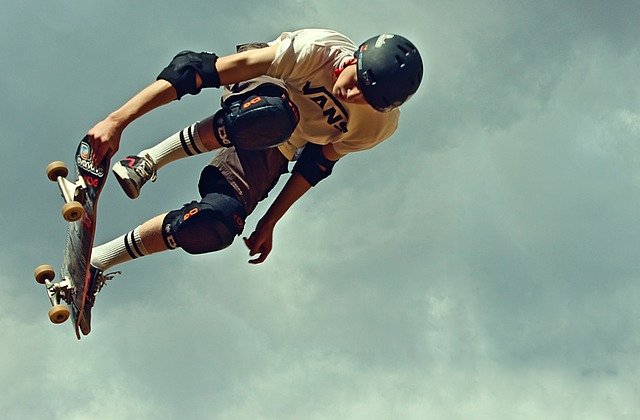
Image courtesy of Pixabay
Avoid skateboarding if you’ve suffered a recent injury, such as a concussion. You’ll need to check with your doctor when it’s okay for you to start skateboarding again. 7 You should also avoid skateboarding if you’re feeling generally unwell. Wait until you feel better to get back on the board again.
As with any form of exercise, don’t try to do too much too soon. If you go from no exercise at all to spending hours skateboarding every day, your muscles are definitely going to protest! Instead, build up your stamina more gradually.
Don’t rush out and spend a fortune on equipment to start. You might be able to borrow a board from a friend or buy a second-hand one. Once you’re confident that you’re going to enjoy skateboarding for the long term, you can invest in your own board.
Avoid skating in poor weather conditions. If it’s raining—or if there’s been a lot of recent rain and your skate ramp is wet—then save skating for another day.
Remember to have fun! Skateboarding isn’t rule-bound like many other sports. You can experiment, develop your own style, and enjoy mastering new tricks.
Skateboarding can give you a lot of health benefits, helping you reduce your risk of long-term disease, manage your weight, and improve your mental health too. It’s a great option if you’re not a fan of team sports, if you love to be outside, or if you get bored with other cardio activities like walking, swimming, or going to the gym.
If you think you’d find skateboarding (or longboarding) fun, why not give it a try?
Article Sources
Healing Daily uses only high-quality sources, including peer-reviewed studies, to support the facts within our articles. Read our editorial process to learn more about how we fact-check and keep our content accurate, reliable, and trustworthy.
- Centers for Disease Control and Prevention. Walking. Centers for Disease Control and Prevention website. Last reviewed September 17, 2020. Accessed August 16th, 2021.
- Wiles T, Kellogg D, Furr H, Nessler JA, Newcomer SC. Characterization of Adult Heart Rate Responses During Recreational Skateboarding at Community Skateparks. Int J Exerc Sci. 2020;13(2):501-510. Published May 1, 2020. Accessed October 6, 2021.
- Harvard Medical School. Calories burned in 30 minutes for people of three different weights. Harvard Health Publishing. Published March 8, 2021. Accessed August 16th, 2021.
- Mikkelsen K, Stojanovska L, Polenakovic M, Bosevski M, Apostolopoulos V. Exercise and mental health. Maturitas. 2017;106:48-56. doi:10.1016/j.maturitas.2017.09.003
- Corwin Z, Maruco T, Williams N, Reichardt R, Romero-Morales M, Rocha C, Astiazaran C. Beyond the Board: Findings from the Field. Pullias Center for Higher Education. Published February 25, 2019. Accessed August 16th, 2021.
- McIntosh AS, Patton DA, McIntosh AG. Managing head injury risks in competitive skateboarding: what do we know?. Br J Sports Med. 2021;55(15):836-842. doi:10.1136/bjsports-2020-102013
- Amit M. Shelat. Concussion in adults – discharge, MedlinePlus. Updated June 6, 2020. Accessed August 16th, 2021.
